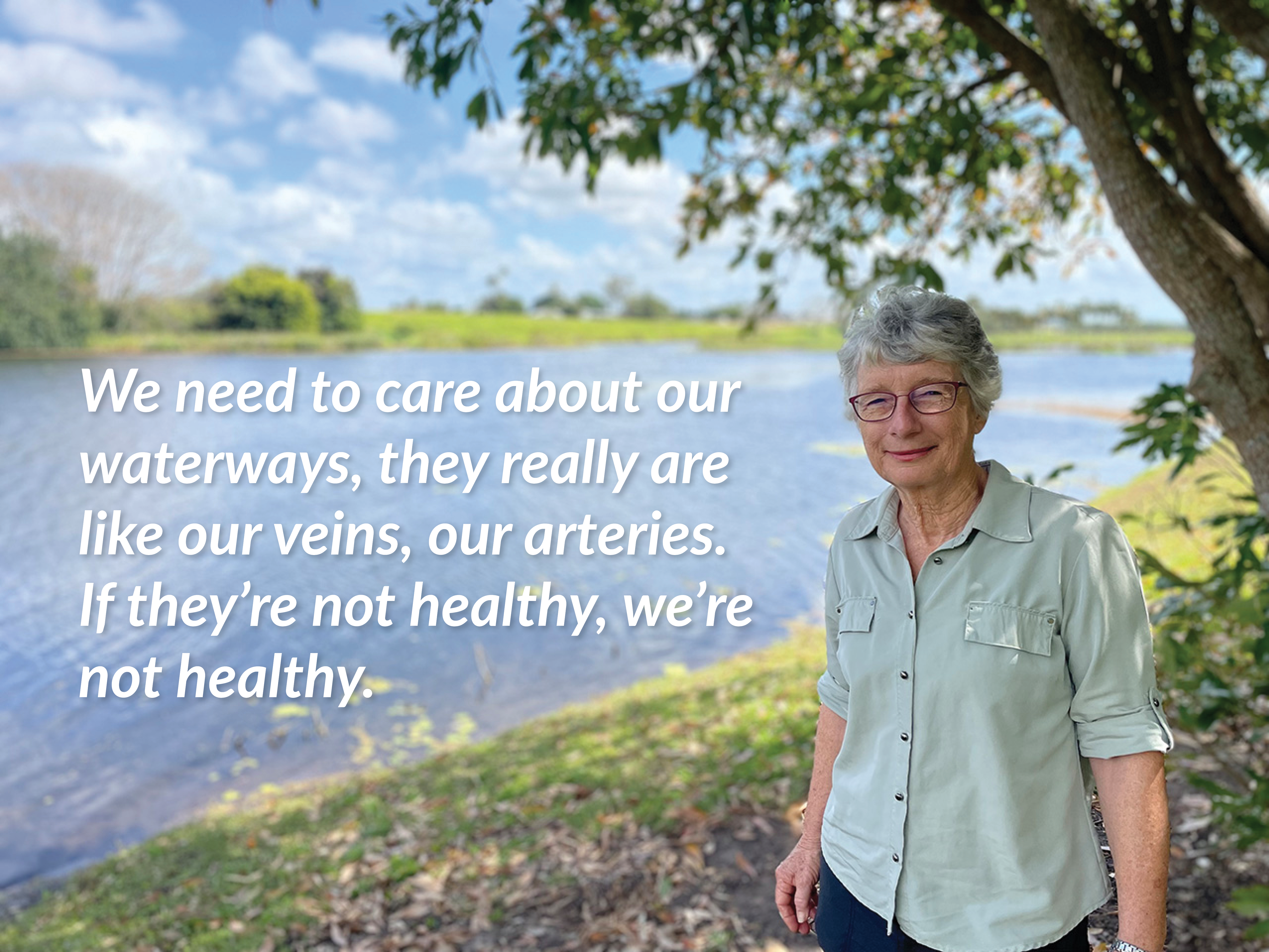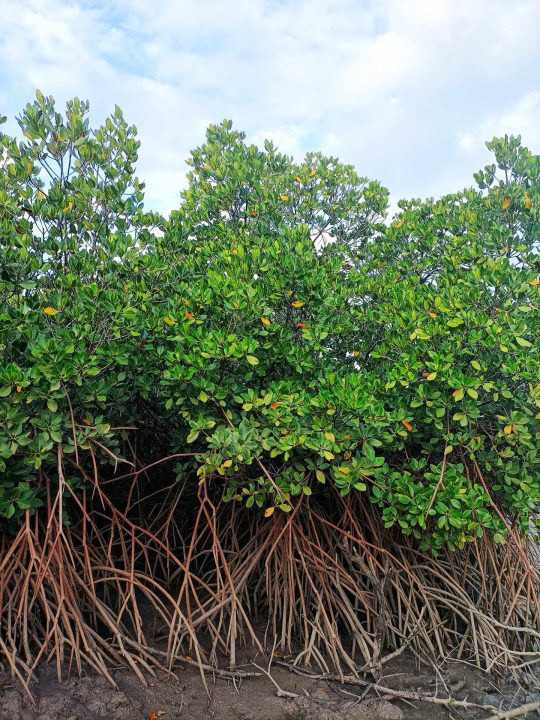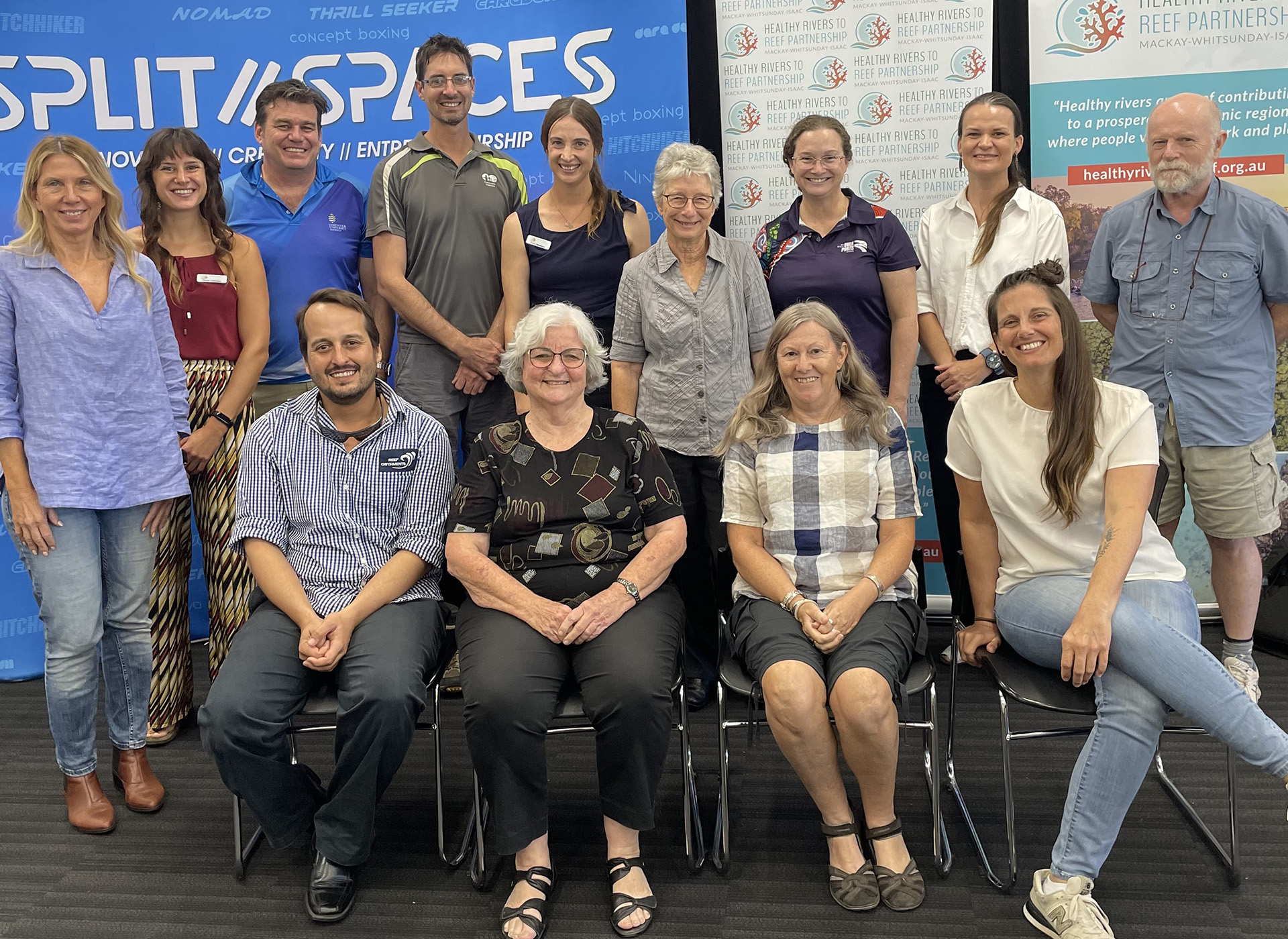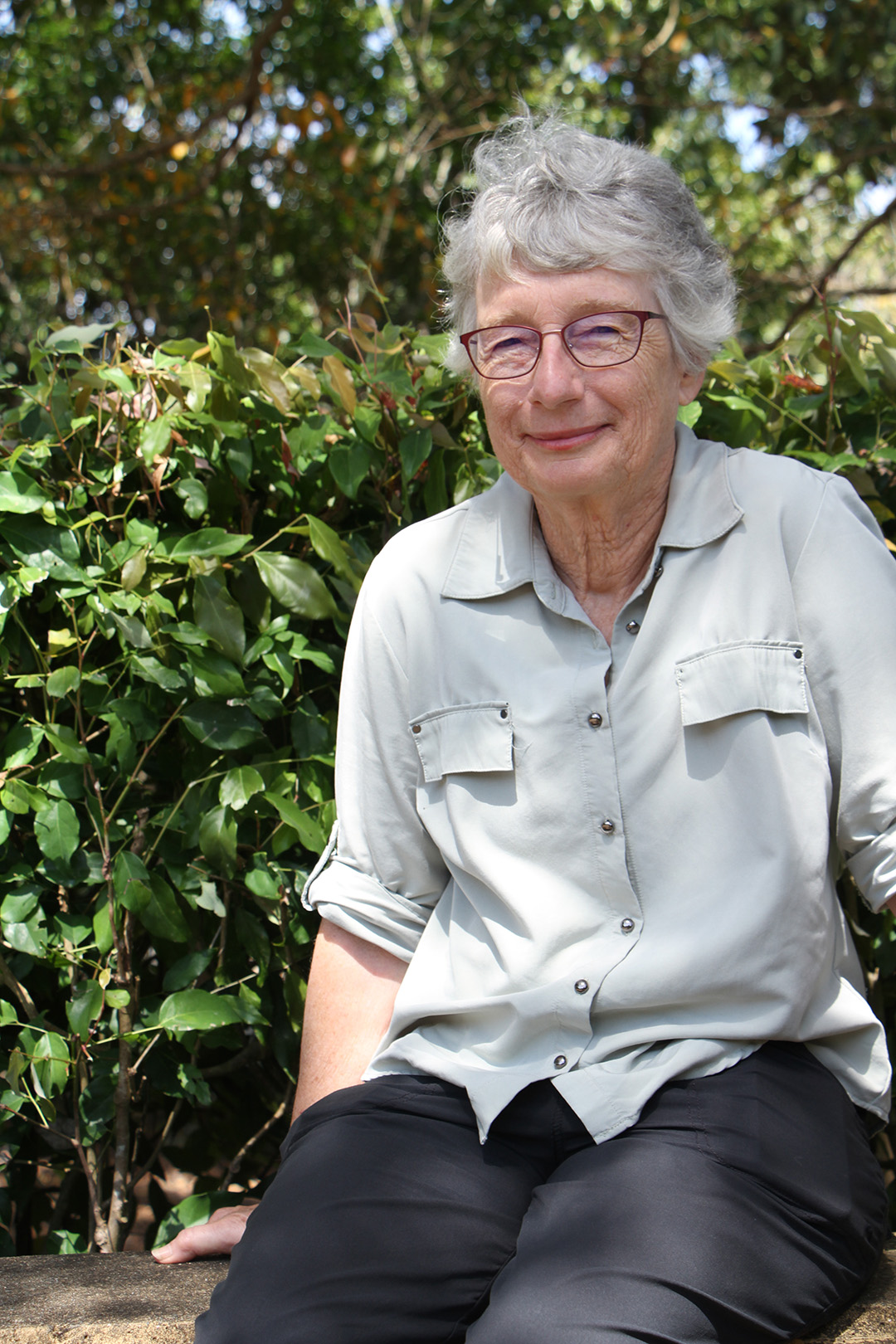After seven years on the regional Report Card’s Technical Working Group (TWG), Dr Judith Wake is stepping away to spend time with the grandkids and lean into her love of plants.
She shares her thoughts on the Partnership, looking after our waterways, and why mangroves really are the best.

Judith became involved in the TWG through her work at CQUniversity where she held many positions including Senior Lecturer, Head of the Applied and Environmental Sciences Programs, and later as an Adjunct Researcher.
Initially drawn to a career in marine science through childhood holidays spent at the beach, Judith later developed an interest in the diversity of estuarine and mangrove habitats.
“The way that the plants and the animals have adapted to such a dynamic environment is fascinating. Mangroves particularly, they’re so structural and so aesthetic. I never get tired of getting in mangroves. I just love them.

Mangroves are one Judith’s favourite habitats to study.
“I got really interested in estuarine water quality when I investigated the cause of an extensive mangrove dieback that affected the Pioneer River and a few other local creeks. That involved quite a lot of mangrove surveys and looking at water and sediment.
“So I became involved in the Technical Working Group as the expert for mangrove habitat and to a lesser extent estuarine water quality.

Judith’s last Technical Working Group to discuss Report Card Results in April 2023.
“The TWG was a real buzz because the people just knew so much. In fact, as Chair I remember a large part of the role was to keep people to the time limit because there was always so much to discuss.”
Judith said the TWG always had a lot of integrity about the data they were reviewing and were passionate about making sure conclusions made in technical reports were reliable and supported by evidence.
“That’s where the TWG spends a lot of time – asking have we got the data to make this conclusion? What conclusions can we make? How reliable is that? And making sure information is presented clearly and without fear or favour.”
“It was really good to sit in a room with a whole group of people with those values and learn from them as well.”
Although Judith has retired from the TWG, she is still an active member of the Healthy Rivers to Reef Partnership, representing Queensland Water and Land Carers which provides support to a broad range of volunteer organisations.
Having been involved in the Partnership since the beginning, Judith has welcomed the growing focus on stewardship and understanding the social and cultural values of our waterways.
“Before we can look after our waterways we need to have a really good understanding of the processes and pressures – that’s a really important part of stewardship.
“Once you see that there’s a problem, getting people on board to do something about it, is really what it’s all about.
“We have to do what we are responsible for so that down the track, you can still see people fishing in the Pioneer River and catching fish.”



